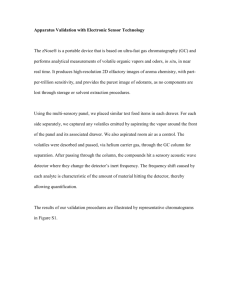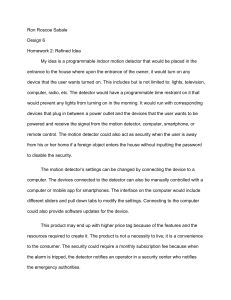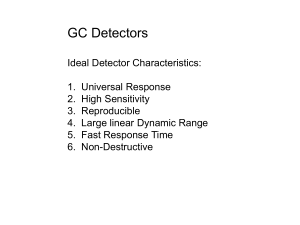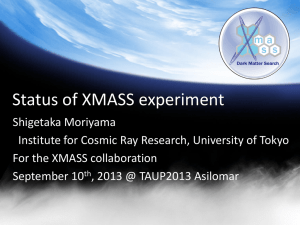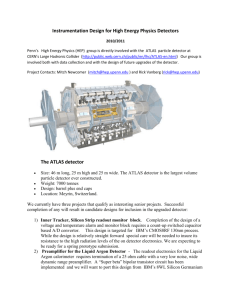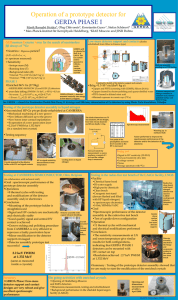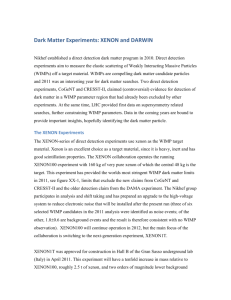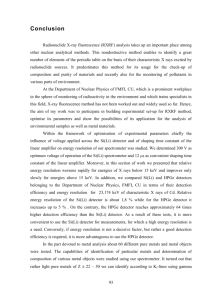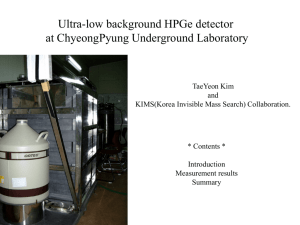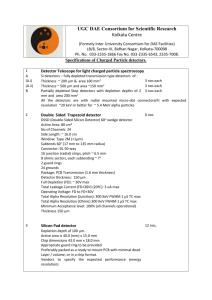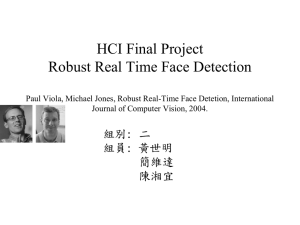pptx - Rencontres du Vietnam
advertisement
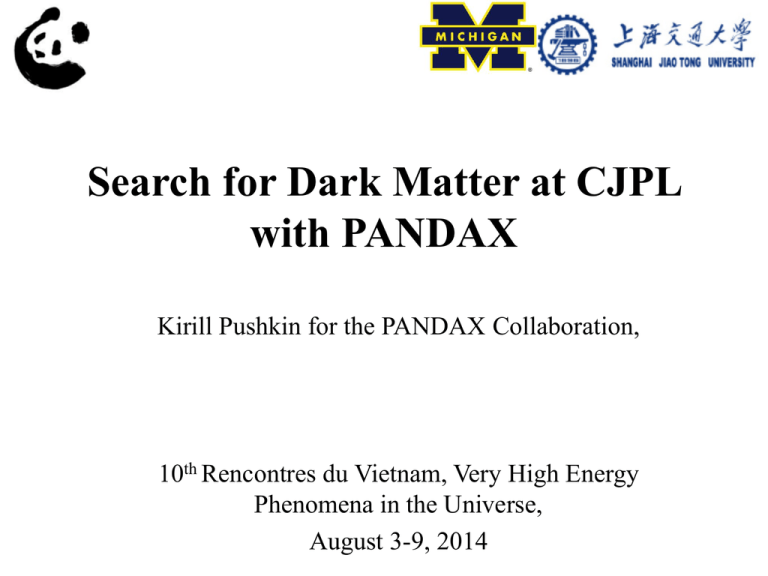
Search for Dark Matter at CJPL with PANDAX Kirill Pushkin for the PANDAX Collaboration, 10th Rencontres du Vietnam, Very High Energy Phenomena in the Universe, August 3-9, 2014 Contents • • • • Introduction Experiment Commissioning. Data taking. Prospects and summary PANDAX: Particle and Astrophysical Xenon The PANDAX Collaboration • Collaboration started in 2009 (includes ~40 people) • 7 institutions Shanghai Jiao Tong University, Shandong University, Shanghai Institute of Applied Physics, CAS, Beijing University, Yalong Hydropower Co., Ltd. http://pandax.org University of Michigan (USA) University of Maryland (USA) China JinPing Underground Laboratory (CJPL) • ~2400 m overburden of rock • μ – veto system unnecessary • Deepest underground lab in operation • compact shielding structure possible 2 6720 m.w.e. ~57 muons/(year x m ) • easy access by road • future plans for CJPL II • Low radioactivity marble rock • Easy access – located in the middle of the 18 km tunnel CJPL SURF SURF Current layout of CJPL Ge counting station The PANDAX laboratory Storage bottles with Gas Xenon Xe detector The PANDAX Detector • Dual phase Xe detector • Probing WIMP-nucleon cross section • Designed for 1 T fiducial mass III stages for PANDAX Stage I Stage III Stage I: 125 kg xenon target, 400 kg total mass Stage II: 500 kg xenon target, 1.3T total mass Stage III: 1.5 ton target, 3T total mass Stage II External shielding Passive shield • Reduces background from surrounding rocks and concrete • Passive shield allows accommodating a large, 1T, scale detector Rn purge with N2 gas • Continuous flush with boiled-off LN2 • Levels of Rn achieved < 1 Bq/m3 (limited by the sensitivity of the used Rn detector Cryogenics Cooling power ~180 W (-96 degrees of Celsius) LN cooling Pulse Tube Refrigerator Heat exchanger Stage I TPC Detector characteristics: • TPC radius: 30 cm • Drift length: 15.4 cm • Total Xenon mass: 400 kg • Sensitive target: Xe mass: 125 kg • Fiducial volume: Xe mass 37 kg • Top PMTs array (1”, R8520): 143 • Bottom PMTs array (3”, R11410): 37 PANDAX- Stage I Background control: Detector materials counting Use materials with low radioactivity: 238U, 232Th, 40K, 60Co PANDAX Stage I Progress PMT calibration with LEDs LED calibrations: • 2 Teflon ball diffusers on top PMT array • LED and diffusers are coupled to optical fibers and feedthroughs • Gains balanced at ~2x106 Calibration data system We can insert a gamma or neutron source into the tubing to calibrate the detector 3D position reconstruction important for further background reduction Xenon purity • Electron lifetime ~262 us (drift time 20-80 us) S2 vs S1 light anticorrelation 80 keV (Xe-131) 40 keV (Xe-129) Gamma background rejection Radioactive background: Kr in Xe Radioisotope Kr-85, T1/2=10.756 years. Beta maximum energy decay 687 keV • We employ a home made distillation column to remove Kr from gaseous Xe. • We use an ultrasensitive Purity Analysis System based on RGA (MKS E-Vision 2). • The amount of Kr-84 in our Xe after the distillation is of the order of ppt which can be subsequently recalculated in to the amount of Kr-85 in Xe. Kr-Xe distillation system Calibration measurements of Kr-84 in Xe gas Integrated partial pressure over 10min (AU) c2 / ndf 18.41 / 12 p0 2.792e-10 ± 6.895e-11 p1 38.52 ± 2.145 10-8 10-9 10-11 10-10 10-9 Concentration of Kr in Xe (mol/mol) Measured by K. Pushkin and He Min Purity Analysis System Sensitivity projection (Stage I after 100 days of taking data) Leff cutoff no cut off below 3 keV Stay tuned for the Physics Results (17 days Dark Matter data paper will be released VERY SOON) Upgrade: Stage II Goals: • Upgrade in preparations. Stay tuned for more exciting news • Sensitivity reach 2x10-46 cm2 at 100 GeV with 54000 kg-day. Future plans: CJPL-II Summary • PANDAX has made a good progress in the past year. Currently, the experiment is taking data. • Stay tuned for the coming 17 days Dark Matter data paper (expected to appear VERY SOON on arXiv). • Currently, we are upgrading the detector, Stage I, to Stage II. Thank you for your attention!
